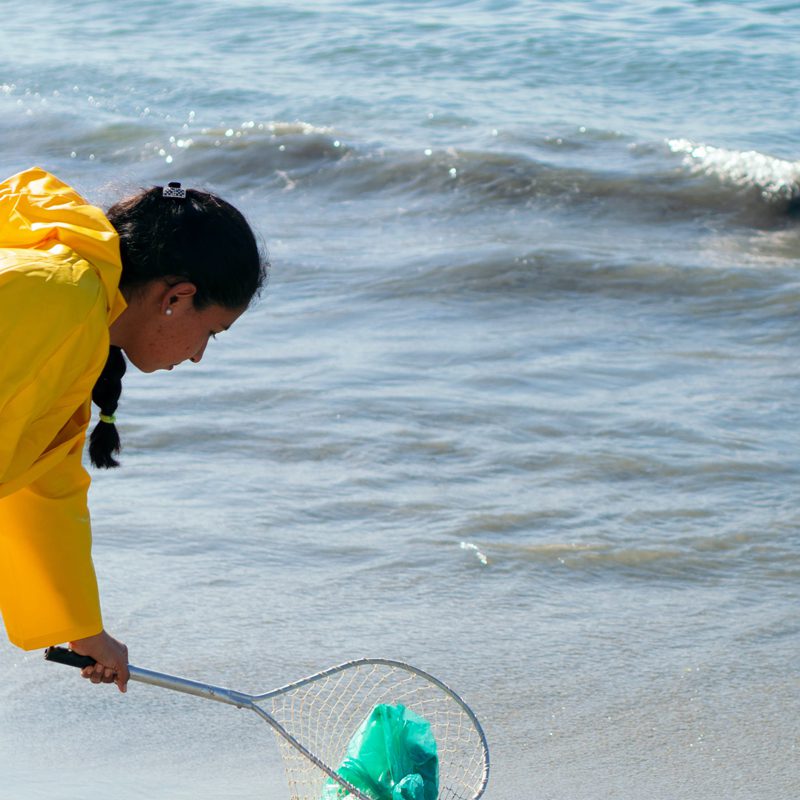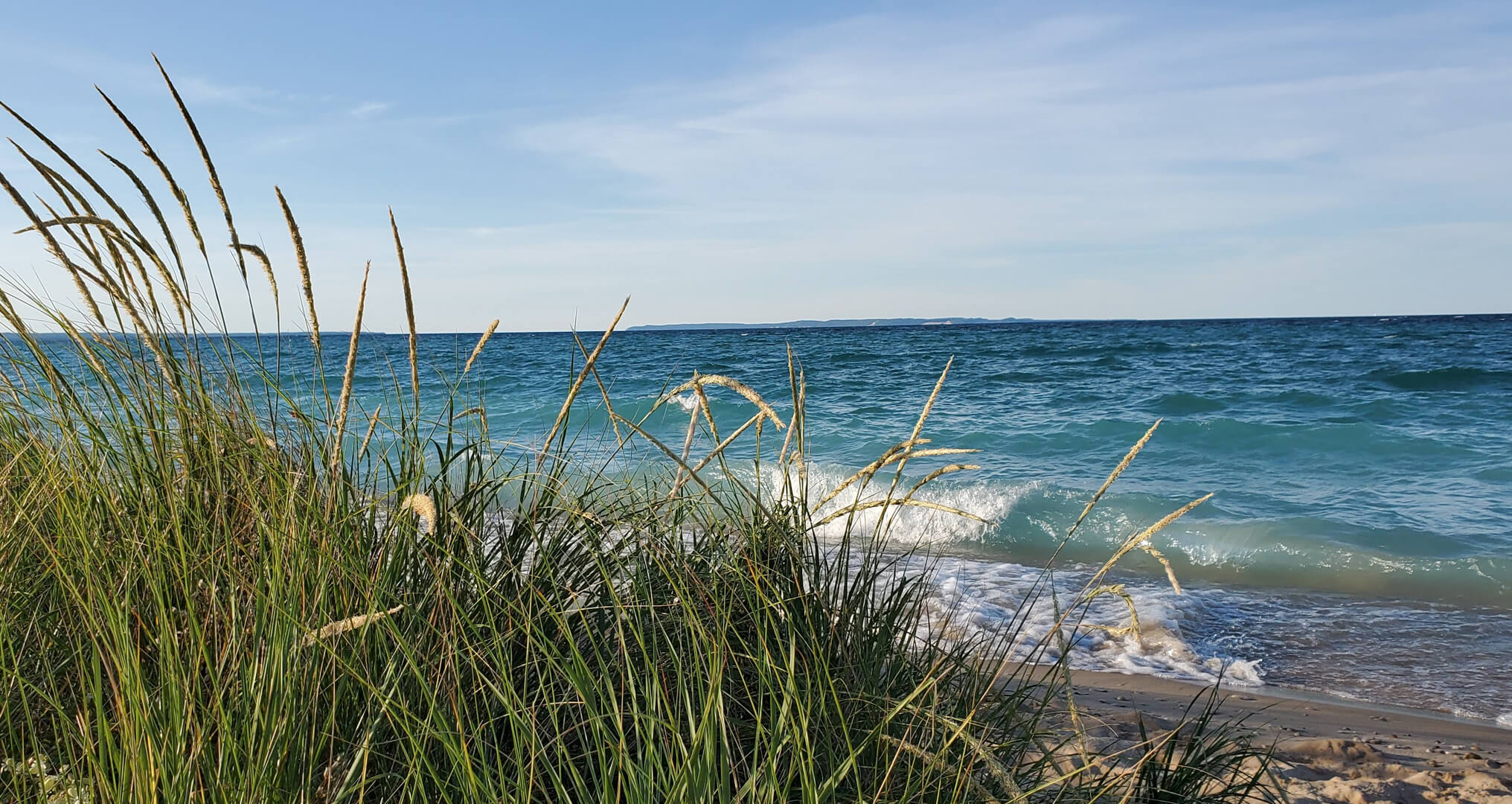The Great Lakes – Superior, Michigan, Huron, Erie, and Ontario – are among the largest bodies of freshwater in the world. They are home to diverse marine life, support vital industries, and provide drinking water to millions across the United States and Canada. However, these magnificent lakes are facing a growing threat: plastic pollution.
Plastic pollution is a global problem that affects oceans, rivers, and lakes. Plastic debris harms marine life by entangling and suffocating animals and releasing toxic chemicals and microplastics into the water. Studies have shown that over 8 million pieces of plastic end up in the oceans daily and that more than 80% of that plastic comes from land-based sources.
Often considered inland seas, the Great Lakes are unfortunately not immune to the human impact of plastic and plastic pollution. In fact, researchers have found microplastics in all five of the lakes, in the sediment, and the fish. So, how can we help protect these massive freshwater lakes from further pollution? Bottleless Nation is here to explain why we need to protect the Great Lakes from plastic.
Pathways of Plastic Pollution to the Great Lakes
Plastic pollution reaches the Great Lakes through various pathways, each posing unique challenges to the mitigation and cleanup efforts. The primary contributors are the surrounding urban and industrial areas. The plastic litter discarded in these areas often gets picked up by wind and rainwater runoff and carried to the lakes via rivers and storm drains.
Another primary source is microplastics, tiny particles less than 5mm in size. These can result from the breaking down of larger plastic items or be manufactured microbeads used in products like facial scrubs and toothpaste. When these products are washed down the drains from surrounding communities, they can eventually end up in the lakes.
Activities like fishing and boating also contribute to the plastic waste in the Great Lakes. Lost or abandoned fishing gear, plastic ropes, and other related debris often end up in the waters and are particularly harmful to marine life.

Lastly, indirect sources such as landfill sites near the lakes also add to the problem. Despite containment efforts, plastic litter can escape landfills due to wind or birds and find its way into the lakes.
Understanding these pathways is crucial to developing strategies to prevent further plastic pollution in the Great Lakes. By tackling the problem at the source and being mindful of our plastic consumption and waste management, we can help protect these vital freshwater bodies.
3 Reasons We Need to Protect the Great Lakes From Plastic Pollution
Plastic Pollution Harms Marine Life
Marine creatures are particularly at risk of plastic pollution as they can easily mistake plastic debris for food. For example, seabirds often ingest plastics, mistaking it for fish eggs or other prey. This can cause internal injuries, starvation, and death. Similarly, fish that feed on microplastics can suffer from malnutrition, disease, and reduced reproductive success.
Furthermore, plastic pollution can have long-term effects on marine ecosystems. For instance, plastic debris can damage coral reefs by blocking sunlight and creating dead zones. It can also affect the chemistry of the water, altering its pH levels and making it more acidic. These effects can have ripple effects on the entire food chain.
Plastic Pollution Harms Human Health
Plastic pollution throughout the Great Lakes can also impact human health. For example, microplastics and their chemicals can enter the food chain when fish and other marine creatures from the lakes are consumed. These chemicals can accumulate in your body and cause various health problems, including cancer, reproductive issues, and developmental problems.
In addition, plastic debris in drinking water tied to the lakes can harm the surrounding communities. Studies have shown that plastic particles can leach chemicals into the water, which can cause hormonal imbalances and other health issues.
Plastic Pollution Threatens Tourism Economies
The Great Lakes support a variety of industries, including tourism and recreational activities. However, plastic pollution can have serious economic consequences. For example, beaches littered with plastic debris can deter tourists and locals from visiting, driving away potential business. In addition, plastic pollution can damage boats, fishing nets, and other equipment used by fishing industries, costing millions of dollars in repairs and lost productivity.
How You Can Get Involved
We all need to take action to protect the Great Lakes from plastic pollution. If you live or work near one of these freshwater bodies, here are some simple actions you can take to help protect these natural landscapes and resources:
- Reduce the use of single-use plastics, such as plastic bags, straws, and water bottles.
- Use reusable bags, bottles, and containers instead of disposable ones.
- Properly dispose of plastic waste and recycle as much as possible.
- Support businesses and organizations that are committed to reducing plastic pollution.
- Participate in beach cleanups and other community events that aim to prevent pollution in the Great Lakes.

It Starts With Us
Protecting the Great Lakes from plastic pollution is an urgent environmental issue that requires action from all of us. By taking simple steps to reduce our use of single-use plastics, recycle more, and support environmentally friendly businesses and organizations, we can all contribute to a healthier and more sustainable future for the Great Lakes and our planet. This is the mission Bottleless Nation has set out on, not just here across the Great Lakes region but also for our coastal neighbors. By encouraging businesses and local communities to reduce plastic waste, we can at least make one small impact on this planet.
If you’re looking for an organization to support this effort, we invite you to join Bottleless Nation and the Bottleless Nation Charitable Foundation – an organization that’s on a mission to reduce plastic in the marketplace by implementing environmentally-friendly products and practices as well as aligning with other water-related initiatives that encourage environmental clean-up and supporting causes that serve water-insecure communities around the US and abroad.
Let us act now before it is too late.
Photo Credits:
Photo by Srikanth Peetha on Unsplash
Photo: Getty Images via Unsplash
Photo by Srikanth Peetha on Unsplash


